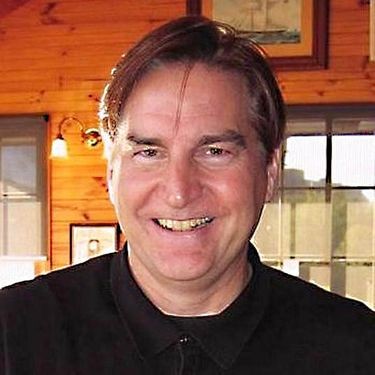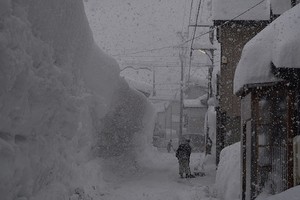June 30, 2023 at 07:30 JST
legs on view at the hayfeeders--horse’s breakfast
--Jessica Allyson (Ottawa, Ontario)
* * *
mirrored reflection
the horses meet at the fence
and touch their noses
--Noga Shemer (Storrs, Connecticut)
* * *
She watches the sun
The sound of the telephone
seems a singing bird
--Saoirse Casey (Dublin, Ireland)
* * *
spring breeze…
a bull carries a crow
on the dirt trail
--Kanchan Chatterjee (Jamshedpur, India)
* * *
vending machines--
even poems and stories
momentary relief
--Masumi Orihara (Atsugi, Kanagawa)
* * *
hungry...
the machine eats
my card
--Lorelyn De la Cruz Arevalo (Bombon, Philippines)
* * *
spraying for roaches
if our house is this dirty
imagine theirs
--Jerome Berglund (Minneapolis, Minnesota)
* * *
summer heat
a child with a bag
picking up empty bottles
--Govind Joshi (Dehradun, India)
* * *
Dandelions
on the battlefield
soldiers in disarray
--Eugeniusz Zacharski (Radom, Poland)
* * *
young rhubarb--
the neighbor
slaughters pigeons
--Ramona Linke (Beesenstedt, Germany)
------------------------------
FROM THE NOTEBOOK
------------------------------
Urban heat--
traffic signal bells
rush walkers
--Satoru Kanematsu (Nagoya)
The haikuist grumbled that it’s already too hot to be prodded by machines when crossing the street. He worries that technocrats aim to unite humans and machines in an explosion of intelligence--hopefully for the better but more likely for the worse. Anne-Marie McHarg was startled by a beguiling blast in London. Ksenia Alessandra Petrova shouted for joy in Mexico City.
Explosion of scent
Hydrangeas
Rising in the air
* * *
oh, hortensia!
in the blazing noon--
cooling blue
Squinting at the skies over Seattle, Washington, Horst Ludwig envied those who can get a good night’s rest, lamenting “it’s tough getting really old, let me tell you.”
After their night’s rest
the geese swarm up, fluttering
into their flight path
Singularity is a term used to describe the point in time when a human-machine is created. Writing from Misawa, Aomori Prefecture, Patrick Sweeney lamented the loss of the beginnings of poetry--the rice-planting songs of the far north that Matsuo Basho heard.
no rice planting songs
a man
on a machine
In the way that the coming of Jesus Christ split humankind’s recording of time into the before and after, perhaps the emergence of a super-intelligent machine could, too. Attempting to hold onto a passing thought, Christopher Calvin penned a double entendre in Kota Mojokerto, Indonesia.
turn of p(age)
memory fades
hydrangea
Writing from Colombo, Sri Lanka, Radhika de Silva preferred the way things were before. John Daleiden offered a prayer in Phoenix, Arizona.
summer sky...
childhood memories
of a blue taffeta dress
* * *
light blue--
hydrangea kimonos
at the temple
Kanematsu’s family don’t rely on machines. They harvest edible grasses by hand to make herbal remedies such as Equisetum, which have been eaten since the days of the Roman Empire. Its name is derived from the Latin roots equus, meaning “horse,” and seta, meaning “bristle.”
One more plate:
horsetails grandson pulled
from the field
His granddaughter wove him a scarf for Father’s Day.
Rhythmic sound
of daughter’s handloom
crescent moon
Orihara wanted to sew patches onto the new clothes worn by a sad-looking high school student.
shy kneecaps
through stone-washed jeans
rainy blues
Arvinder Kaur penned a haiku with love and gratitude in Chandigarh, India. David Greenwood pondered human chemistry in St. Andrews, Scotland.
father’s day
the sky too a colour
of his turban
* * *
hydrangea
what color will it be as
our lives soil changes?
Francoise Maurice abruptly changed her frame of mind in Draguignan, France: mood swing... the changing colours of the hydrangea
Olivier-Gabriel Humbert read telltale signs in Les Avenieres, France.
hydrangeas
one blue the other pink
you won’t come back
Orihara walked around centuries-old Shinobazu Pond in Tokyo’s Ueno Park. Mauro Battini may have had pink dental floss in his mind’s eye when he awoke in Pisa, Italy.
morning peals--
the lotus pond awakes
with a big yawn
* * *
at dawn the herons
they clean their beaks--
pink water lilies
John Hamley is getting a little long in the tooth--a little too old perhaps--to be poking fun at his readers, but he formed this poem based on a literary device used in fairy tales.
Cover girl
can’t close her mouth
her teeth too long
Writing from Marmora, Ontario, he claimed that haiku is remarkable because of the way it can work on readers’ minds. If haiku are short and snappy, create an image or two in the mind’s eye and contain enough contrast, they might lead readers to see those images in new and different ways. A glimpse of armored skin rising from a moat nudged Simona Brinzaru to create this fairy tale in the quiet castle town of Transylvania, Romania.
waterfall
the hidden carp
still trying to be a dragon
This concept of seeing something in a new light seems similar to a “now you see it, now you don’t” sleight of hand suggested by the master haikuist Matsuo Basho in 1684 when he composed: Michinobe no mukuge wa uma ni kuwarekeri
Blooming by the road
rose of Sharon flowers...
eaten by my horse
A.J. Anwar’s son has lost the chance to fish and eat rice from paddy fields in the way his grandfather did in Jakarta, Indonesia.
marsh fishing with dad
a vigilant waterhen
there, now there
John S. Gilbertson wondered what a door-to-door salesperson was showing to his neighbors in Greenville, South Carolina.
illusionist
purveyor of the hidden
in sacred basket
Helen Buckingham unearthed a colorful wardrobe in Wells, United Kingdom.
I sort through Mum’s
under-the-bed boxes
vintage fabrics bloom
Sherry Reniker fished in Kent, Washington. Anthony Q. Rabang enjoyed a full day at the beach in Santa Catalina, Philippines. Writing from Tralee, Ireland, Noel King described the passing of time in a set of rooms on one floor without stairs.
shimmering
in the shallows
grandpa’s silver lure
* * *
pet tortoise
into the sea…
home by sunset
* * *
pet Aussie Possum
getting used to new surroundings
in a London flat
Marshall Hryciuk got swarmed by oily mayflies at Lake Ontario.
evening
hundreds of midges
hover the apple blossoms
Mariya Gusev understands that machines need oil but spoke up for the birds who can’t in Arlington, Virginia.
another oil spill--
the no swim advisory
that the ducks can’t read
During Canada’s worst-ever wildfire season, more than 400 wildfires burned one billion trees and millions of hectares of grasslands, pouring two billion tons of carbon dioxide into the atmosphere. Liz Gibbs penned a haiku while Calgary, Alberta, burned. While guiding the London Blind Walking Group, McHarg rambled through barley and wheat crop fields until the walkers reached a large lake that offered refuge for migrants.
scorched earth
sitting in the hot seat
a nation inflamed
* * *
Far distance
Canada geese drift
Summer haze
Julia Guzman heard a braying complaint in Cordoba, Argentina.
wild poppies in the wind--
in the distance
a young donkey tied
Smoke and ash reached Xenia Tran’s garden in Nairn, Scotland. Rosa Maria Di Salvatore covered her shoulders with a sparkling shawl in Catania, Italy.
forget-me-nots...
light specks of blue appear
through the smoke
* * *
an evening breeze…
golden specks
on the seawater
Alan Peat bid good evening to a blue, red and green hued bird in Biddulph, England.
falling sun
the painted buntings
start to darken
Bob Friedland bid adieu to a bird perched on a Japanese barberry in Richmond, British Columbia,
Trees with purple leaves,
formerly pink with blossoms,
a small swallow flies away
----------------------------------------------------------------------------
The next issues of the Asahi Haikuist Network appear on July 7 and 21. Readers are invited to send haiku inspired by Matsuo Basho’s verse: “Blooming by the road rose of Sharon flowers... eaten by my horse,” on a postcard to David McMurray at the International University of Kagoshima, Sakanoue 8-34-1, Kagoshima, 891-0197, Japan, or by e-mail to (mcmurray@fka.att.ne.jp).
* * *

David McMurray has been writing the Asahi Haikuist Network column since April 1995, first for the Asahi Evening News. He is on the editorial board of the Red Moon Anthology of English-Language Haiku, columnist for the Haiku International Association, and is editor of Teaching Assistance, a column in The Language Teacher of the Japan Association for Language Teaching (JALT).
McMurray is professor of intercultural studies at The International University of Kagoshima where he lectures on international haiku. At the Graduate School he supervises students who research haiku. He is a correspondent school teacher of Haiku in English for the Asahi Culture Center in Tokyo.
McMurray judges haiku contests organized by The International University of Kagoshima, Ito En Oi Ocha, Asahi Culture Center, Matsuyama City, Polish Haiku Association, Ministry of Foreign Affairs, Seinan Jo Gakuin University, and Only One Tree.
McMurray’s award-winning books include: “Teaching and Learning Haiku in English” (2022); “Only One Tree Haiku, Music & Metaphor” (2015); “Canada Project Collected Essays & Poems” Vols. 1-8 (2013); and “Haiku in English as a Japanese Language” (2003).




















A peek through the music industry’s curtain at the producers who harnessed social media to help their idols go global.
A series based on diplomatic documents declassified by Japan’s Foreign Ministry
Here is a collection of first-hand accounts by “hibakusha” atomic bomb survivors.
Cooking experts, chefs and others involved in the field of food introduce their special recipes intertwined with their paths in life.
A series about Japanese-Americans and their memories of World War II